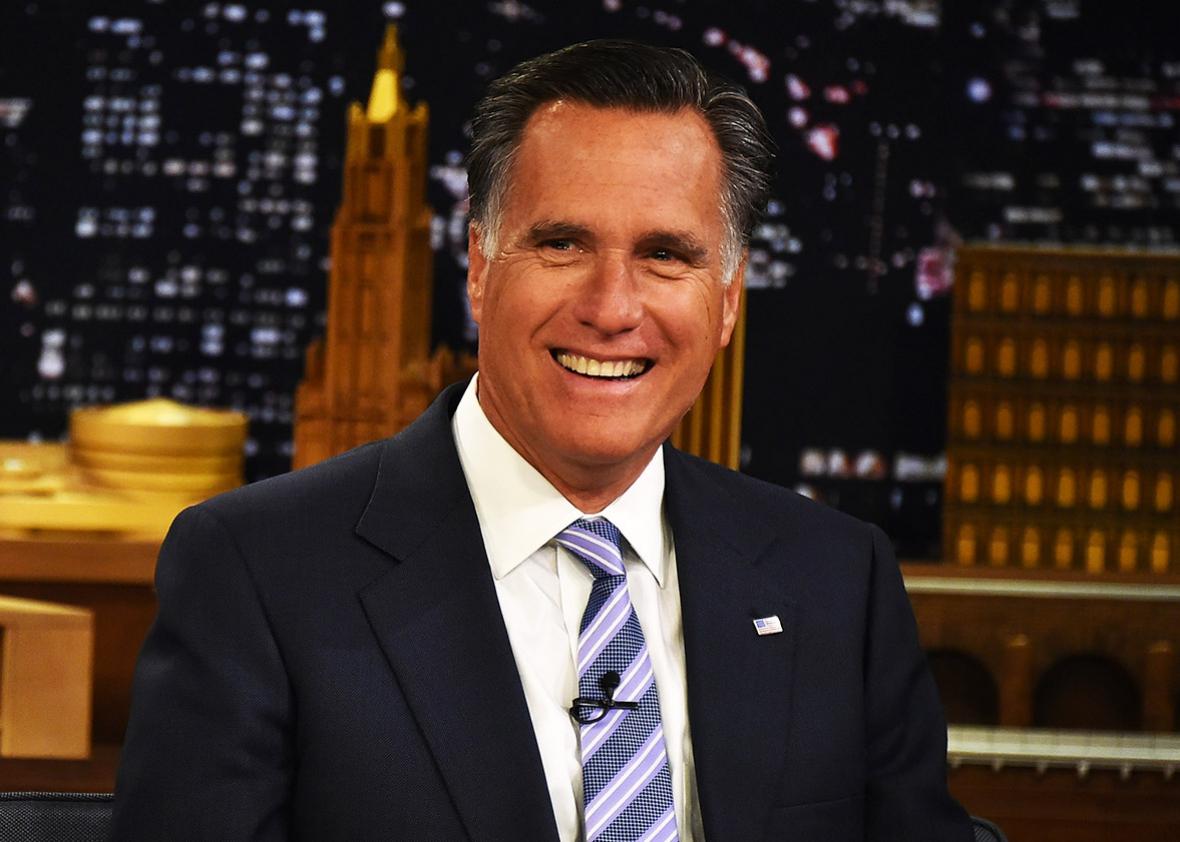Mitt Romney’s name has been bandied about in some quarters as a possible Republican savior: the man who could either enter the race at the last moment or emerge victorious during a contested convention. Widely seen as competent and sturdy, not to mention opposed to racism and hate-mongering, Romney, the thinking goes, would allow the Republican establishment an ultimate victory over Donald Trump. Social media even exploded in excitement on Wednesday with the news that Romney would deliver a speech on the state of the presidential campaign on Thursday morning in Utah.
Romney would likely be a better general election candidate than Trump, but he was a far-from-perfect nominee last time, and wouldn’t stand much of a chance if he entered the race this time. Nor would he necessarily be particularly strong if he somehow emerged from the convention as the party’s standard-bearer, overriding the substantial number of voters who supported Trump. But what’s even worse, and less talked about amid his Twitter warring with Trump, is that his response to the front-runner has displayed all the same symptoms of the establishment’s response: fits and starts, hypocrisy, and very little grand strategy. Romney is less a cure for the GOP’s problems than a symptom of what ails the party.
The Republican establishment has viewed Trump as everything from a nuisance who must be appeased, to a demagogue, to the man who could potentially destroy the party. Romney has mirrored this progression. In 2012, after Trump had flirted with running for the presidency before abandoning the idea, Romney felt the need to seek the businessman’s endorsement, holding an event with him and receiving his blessing. This was well after Trump had used the so-called “birther” issue to drum up media coverage for himself, one of many examples of Trump’s bigotry that Romney now decries in appropriately moralistic fashion. Like the entire Republican establishment and its ideological allies in the media who have found themselves “shocked, shocked” by the Trump campaign’s dark turn, Romney was, for a long time, just another enabler.
Now Romney is going after Trump with real passion, blasting him for his bigotry, and saying he represents a threat to the party. But Romney, who has long been mocked for his undying ambition to become president, seems to be just as calculating as everyone else in his anti-Trump response. Like a number of Republican bigwigs who stayed on the sidelines throughout the early primary contests, Romney never endorsed Bush or Rubio or anyone else. He met with many of the candidates, but never chose anyone, nor did he encourage his fundraisers to get behind a candidate. Romney remains popular in New Hampshire, where Trump was up big, but said almost nothing on the eve of the primary.
And now, as Trump has gone from slight favorite to overwhelming favorite to win the nomination in the past several weeks, Romney still appears to be calculating.
His team is saying that his speech on Thursday in Utah will include neither an endorsement, nor an announcement that he is at long last going to try to run—as a Republican or on a third-party ticket. It’s unclear why Romney, who is obviously passionate about the election, refuses to endorse, but here is one theory: that convention scenario. Endorsing someone now would make it much harder for Romney to eventually emerge as a peacemaker.
Fair enough, you might say: He wants to maintain his viability. But this is precisely the problem that all the candidates who are actually running have had. None of them wants to step aside for the greater good of stopping Trump; all of them are sticking around in the slim hope that they can be the eventual, lone anti-Trump alternative. In short, Romney isn’t much different than Rubio or Kasich or anyone else. And none of them seem likely to vanquish Trump, either.
